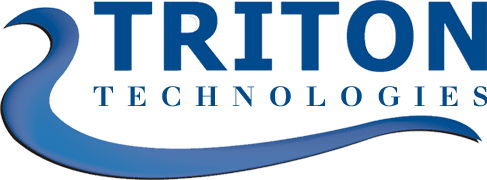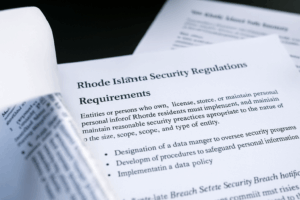Password Basics That Are Still Ignored
In the realm of cybersecurity, passwords remain a critical line of defense. You can have all the locks on your data center and the most advanced network security, but nothing will keep your data safe if your employees are careless with their passwords. Data breaches can occur in various ways, from phishing scams to malware attacks, but today we’re focusing on the basics of password security. Here are some essential practices your employees should follow to protect your business’s sensitive information. While system administrators should implement advanced security policies, such as prohibiting the reuse of old passwords and locking accounts after multiple failed login attempts, these fundamental tips are crucial for managers to enforce.
The Importance of Changing Passwords Regularly
One of the most straightforward yet often ignored practices is the regular changing of passwords. Security experts generally recommend that companies require all employees to update their passwords every 30 to 90 days. This practice helps to mitigate the risk of password compromise over time. If a password is stolen or guessed, the window of opportunity for unauthorized access is limited if employees are regularly updating their credentials.
Regular password changes also help to guard against breaches that may go undetected for a period. If a malicious actor has obtained a password, they might lie in wait to exploit this access. Changing passwords frequently disrupts this kind of long-term unauthorized access.
Explore our Managed Service Offerings
Worcester’s Top Managed Service Provider
Implementing Strong Password Requirements
A strong password policy is foundational to cybersecurity. Passwords should be complex and include a mix of upper and lowercase letters, numbers, and symbols. This complexity makes passwords significantly harder to crack. Here are a few guidelines for creating strong passwords:
Length
A minimum of 12 characters is recommended. The longer the password, the harder it is to break.
Complexity
Include uppercase and lowercase letters, numbers, and special characters. For example, a password like P@ssw0rd!23 is much stronger than password123.
Avoid Predictability
Do not use common dictionary words or easily guessable information such as birthdays, addresses, or names. Passwords like John1234 or Summer2021 are prime targets for attackers.
Avoiding the Use of Personal Information
Employees should be educated about the dangers of using personal information in their passwords. Details like addresses, phone numbers, or social security numbers are easily obtainable through social engineering or data breaches. Hackers often use this information to guess passwords. Encourage your team to create passwords that do not include any personal data or common words. Instead, they should use random combinations of characters and numbers to enhance security.
The Perils of Shared Access
A common yet risky practice in many workplaces is the sharing of login credentials. Employees might leave systems open and allow others to access them to save time. This practice is highly insecure and can lead to severe data breaches.
To mitigate this risk, establish a strict policy that prohibits the use of another employee’s login credentials. Each employee should have their own unique login information, and systems should be set to automatically log out after a period of inactivity. This ensures that no unauthorized individual can access sensitive data using someone else’s credentials.
Additional Security Measures
Beyond the basics, there are several additional measures that can bolster password security:
Multi-Factor Authentication (MFA)
Implement MFA wherever possible. This adds an extra layer of security by requiring a second form of verification, such as a text message code or biometric scan, in addition to the password.
Encourage the use of password managers. These tools generate and store complex passwords, ensuring that employees do not have to remember multiple strong passwords. This reduces the likelihood of using simple, easily guessable passwords.
Regular Training and Awareness
Conduct regular training sessions to keep employees informed about the latest security threats and best practices. Awareness is key to ensuring compliance with password policies.
Monitor and Audit: Regularly monitor and audit password practices. Use tools to enforce password policies and detect any deviations. This proactive approach helps in identifying and addressing security gaps promptly.
The Consequences of Ignoring Password Security
Ignoring password security can have dire consequences for your business. Data breaches can result in financial losses, legal ramifications, and damage to your company’s reputation. Sensitive information, once compromised, can be used for identity theft, fraud, or competitive espionage. The cost of a data breach often far exceeds the effort required to enforce strong password policies.
Discover Our Compliance Management Solutions
Worcester’s Leading Provider of Compliance Services
How Triton Technologies Can Help
At Triton Technologies, we understand the complexities and challenges of maintaining robust cybersecurity protocols. Our services are designed to help businesses implement and maintain effective password security practices, ensuring that your data remains protected. Here’s how we can assist you:
Comprehensive Security Audits
We conduct thorough audits of your current security practices to identify vulnerabilities and recommend improvements.
Custom Password Policies
Triton Technologies can help you develop and enforce strong password policies tailored to your business needs. This includes guidelines on password complexity, change frequency, and other best practices.
Multi-Factor Authentication Implementation
We can assist in implementing multi-factor authentication systems to add an extra layer of security to your user logins.
Employee Training and Awareness Programs
Our training programs educate your employees about the importance of password security and best practices to follow, helping to create a culture of security awareness within your organization.
Advanced Security Solutions
From password managers to automated monitoring tools, we offer a range of advanced solutions to enhance your password security framework.
Ongoing Support and Updates: Cybersecurity threats are constantly evolving. We provide ongoing support and updates to ensure your security measures remain effective against new and emerging threats.
By partnering with Triton Technologies, you can ensure that your business is equipped with the latest tools and knowledge to combat password-related security risks. Our expertise allows you to focus on your core business activities, confident that your data is protected.
In conclusion, while advanced cybersecurity measures are essential, the basics of password security cannot be ignored. Regular password changes, strong password requirements, avoiding the use of personal information, and strict policies against shared access are fundamental practices that every organization should enforce. By educating your employees and implementing these basic tips, you can significantly enhance your company’s security posture and protect your valuable data from unauthorized access. Remember, in the realm of cybersecurity, it’s often the simplest practices that make the biggest difference.
With Triton Technologies by your side, you can confidently navigate the complexities of password security and ensure that your business remains resilient against cyber threats. Contact us today to learn more about our services and how we can help secure your digital assets.
Discover our IT Solutions for Your Industry
Worcester’s Top Managed Service Provider



